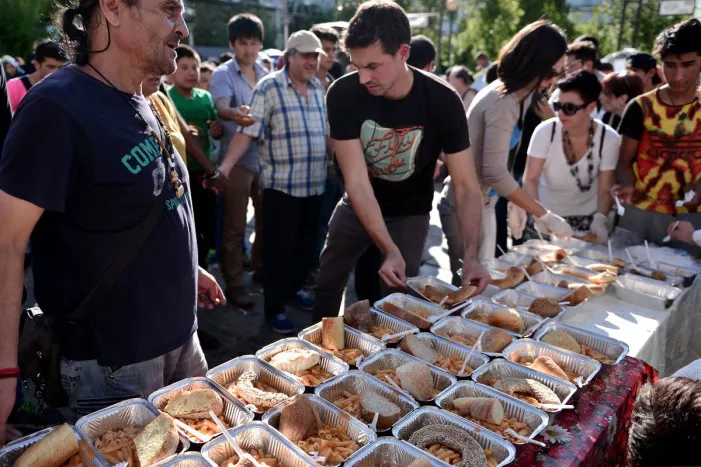In a stark alert issued on Wednesday, the World Food Programme (WFP) cautioned that Sudan faces an imminent “hunger catastrophe” unless regular food aid can be delivered promptly, following eight months of conflict between rival generals. The WFP expressed concern that war-torn regions in Sudan are at a high risk of descending into catastrophic hunger conditions by the upcoming lean season next year.
The warning comes in the wake of an internal power struggle that erupted on April 15 between army chief Abdel Fattah Al-Burhan and his former deputy, Mohamed Hamdan Daglo, commander of the paramilitary Rapid Support Forces (RSF). This conflict, stemming from the fallout of their joint involvement in a 2021 coup, has claimed over 12,190 lives, according to estimates by the Armed Conflict Location & Event Data Project.
The United Nations has documented the displacement of seven million people across Sudan. Coupled with poor harvests, hunger is looming over significant parts of the country, including the Darfur region, Kordofan in the south, and the capital, Khartoum, where the conflict initially erupted.
The WFP disclosed that nearly 18 million people in Sudan are currently grappling with acute hunger, marking more than double the figure from the same period a year ago. A recent food analysis for Sudan, once considered East Africa’s future breadbasket, indicates the highest levels of hunger ever recorded during the harvest season (October through February), traditionally a period of increased food availability.
Eddie Rowe, WFP Country Director and Representative in Sudan, urgently called on all conflicting parties to observe a humanitarian pause and ensure unfettered access to avert the impending hunger catastrophe. However, negotiations between the warring factions remain challenging, and both sides have been implicated in breaking past truces.
Clementine Nkweta-Salami, the head of the UN’s humanitarian response in Sudan, highlighted the organization’s limited reach, having only been able to provide aid to a fraction of the nearly 25 million people in need. Chronic funding shortages threaten to halt assistance even to the four million already reached if the situation persists.
Despite the urgency of the humanitarian crisis, reaching a resolution seems elusive, as evidenced by the Sudanese authorities’ request to terminate the UN’s political mission in the country on December 1. The United Nations Integrated Transition Assistance Mission in Sudan, established in 2020 to support the move to democracy after the fall of veteran Islamist autocrat Omar Al-Bashir, concluded its operations in response to this request.


























